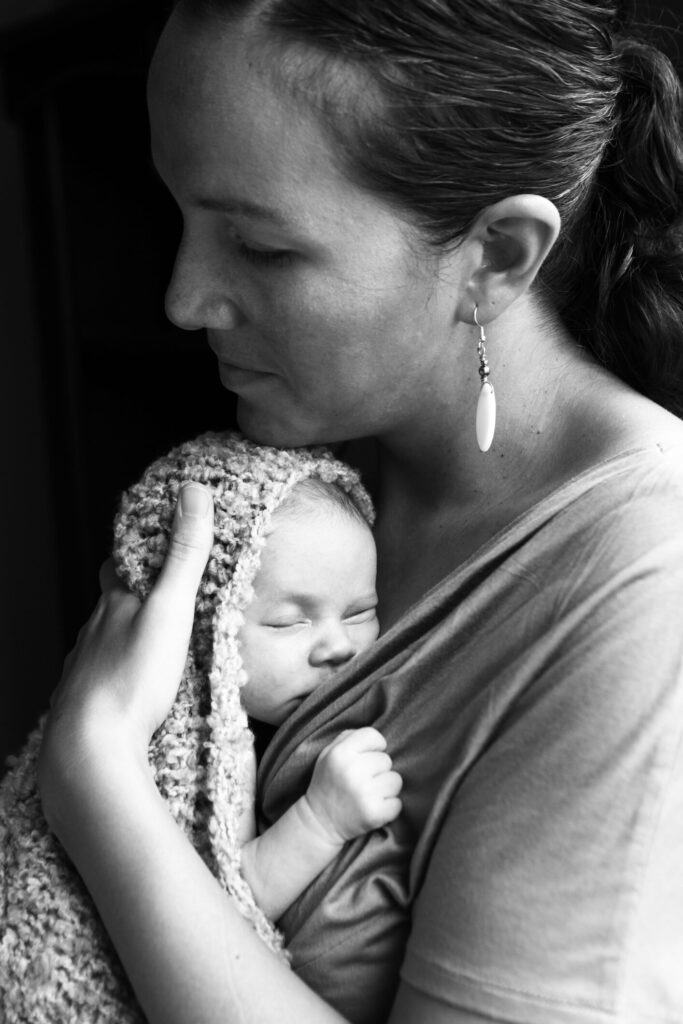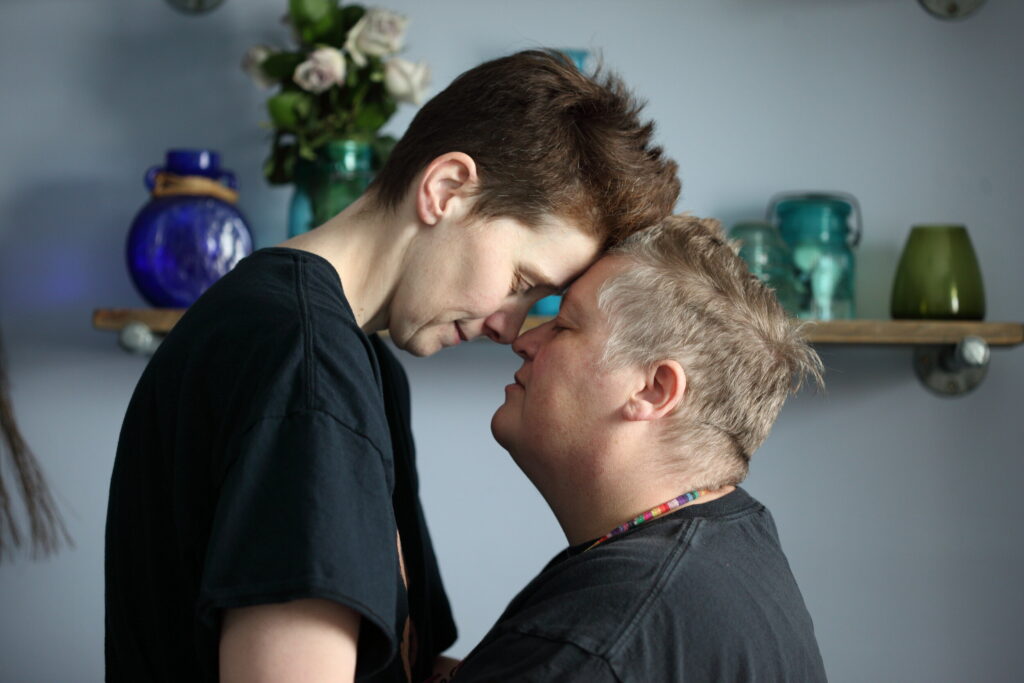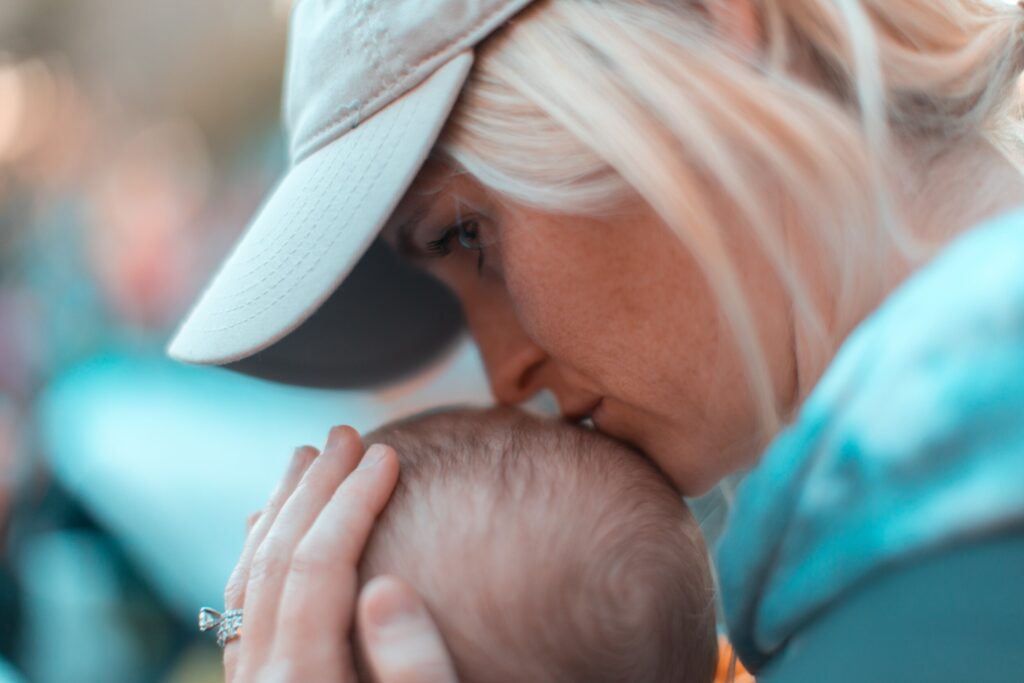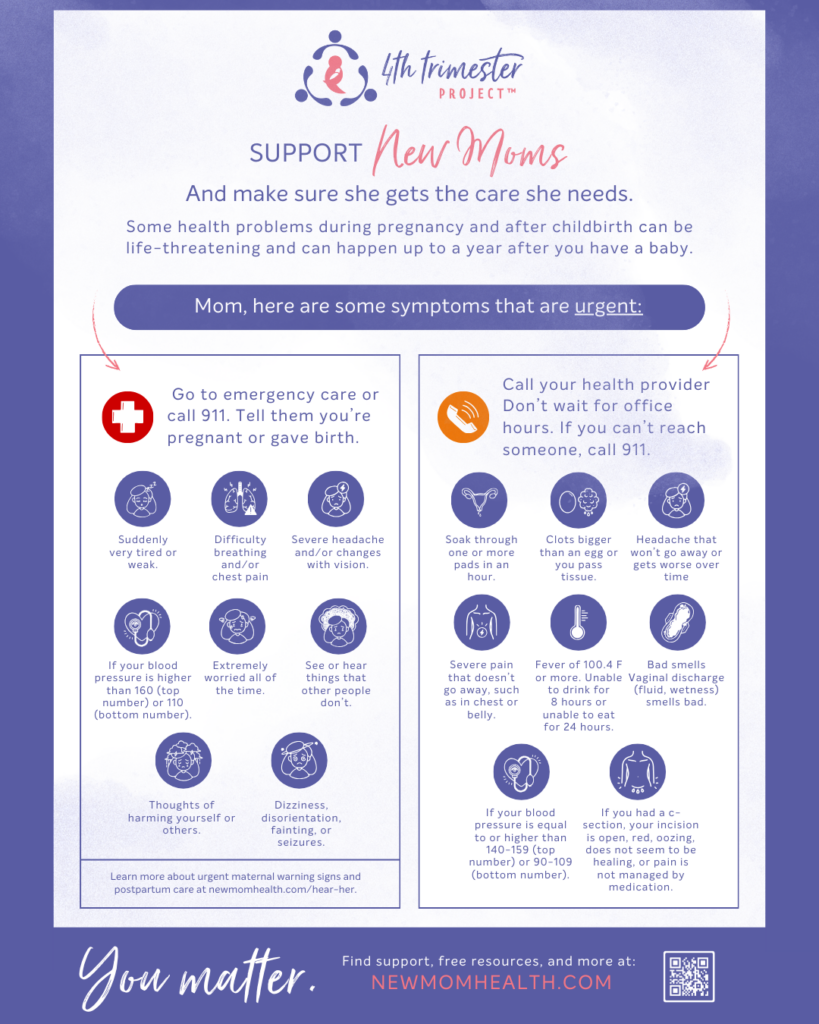
When we become moms, we’re wired to protect our babies. The hormones of labor, cuddling and breastfeeding trigger moms to respond to our baby’s cries. But we’re not supposed to do it by ourselves – in fact, the reason babies have evolved to be cute is so that other grownups want to help take care of them. Humans are collective breeders, and we’re supposed to pass our babies around to friends and family, caring for them as a team.
That’s how we’ve done it for thousands of years – but in 21st century America, too many moms are left on their own to handle a new baby, as well as all their other responsibilities, both personal and professional. That’s a big part of why “Mom Guilt” is so common. We feel this way because we want to do the most possible in every aspect of our lives, at the same time. This is a challenge no matter the number of births, children, work situation, home life, age, relationship status, support systems etc.
When women do not meet their own expectations, or compare themselves to others, feelings of guilt, doubt, anxiety, or uncertainty may arise. This issue is not unique to the 4th Trimester. This drive to do well can be reframed. The opposite of guilt is pride, respect, kindness, strength, and blessing. What would happen if women everywhere were able to redefine situations so they could celebrate their strength and resilience?!
How can I cope with “Mom Guilt?”
- Are you doubting your parenting abilities or feeling judgement? Babies are unique, and mothers are unique – TRUST YOURSELF! Of course an open mind and continual learning are important, but also use your intuition when making decisions about your child, self, and family.
- Are you comparing yourself to others? Keep in mind many people only portray their best selves on social media. It’s not the full story. Your situation is not the same as anyone else’s. You do you! It is also ok to take a break from social media once in a while.
- Do you feel anxious at home or while leaving your baby? Both of these feelings are common. It is perfectly okay to say, “I feel better when I have some time away.” It is also perfectly okay to say, “I feel better being with my baby, so we travel as a team!” – do what works for you.
- Does your schedule make you feel sad? Mothers often wear so many hats – give yourself permission to prioritize something that brings you joy. When mama is happy, everyone is happier too!
- Are your feelings affecting your work, relationships, or other aspects of daily life? It really does take a village. Talk to your partner, family, friends, and health care team. How might they help you manage your new roles and responsibilities? Learn more about anxiety, feeling down, worry, and other mood concerns.
- Bottom line: There is no perfect way to parent – you are perfect because you are you. Parenting is not a competition. Be gentle with yourself and be realistic with your expectations. The postpartum period is all about change. It’s not easy. Focus on what matters most and the rest can be sorted out.
How can I help myself or other mamas struggling with “Mom Guilt”?
- Talk to a supportive friend! Explore in-person and online community networks. You are not alone.
- Talk to yourself like you would talk to a friend.
- Work hard to stop cycles of guilt. “Fill buckets” by offering authentic compliments to others. You will feel that positivity too.
- If you have friends on social media that stress you out, unfollow them.
- Practice “Random Comments of Kindness” – see a fellow momma trying her best online or in line? Go out of your way to leave a comment you’d like to read on your own social media or smile and offer a hand.
- Talk with your health care provider, therapist, or another trusted person. Feeling heard goes along way and behavioral coping strategies can be effective.
- Do some research on something you’re struggling with, but trust your intuition.
- Start a positivity journal – write down one thing each day you are thankful for or can call a “win” – keep it simple!
- Find humor and something positive in the daily routines – see the pockets of joy.
- Instead of a “to-do” list, keep a “did-do” list.
- Parenting is a combination of overwhelming joy, terrible fear, and tremendous frustration. As you make your way through motherhood, actively look for the joy. It can be easy to miss – and somehow, it doesn’t take any effort to find the fear or the frustration.
Is managing this becoming overwhelming? Consider learning about various maternal mental health conditions – here are some examples. You can talk with your provider about treatment. Be sure you also realize that SOME maternal mental health conditions are medical emergencies – know the urgent maternal mental health warning signs and what to do if you think you’re experiencing any.
Additional Resources to Explore:
- Read more blogs about Mom Guilt
- Know when to call for help – see NewMomHealth.com/Help
- View the Maternal Health Warning Signs Flyer
- View the New Parent Health One-Pager and Taking Care Of You Booklet
- View the Alliance for Innovation on Maternal Health resources
- View the Hear Her NC campaign materials
- Shades of Blue
- Maternal Mental Health Leadership Alliance Fact Sheets
- IRTH App for Black mothers
- You can find additional resources to support expecting and new parents in the Resource Center










